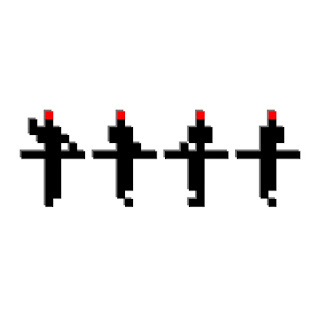Planet Jarre: 50 Years of Music is a compilation album by French electronic musician and composer Jean-Michel Jarre, released on 14 September 2018 to commemorate Jarre's 50 years in the music business.
A total of forty-one tracks were chosen by Jarre himself for inclusion, among them two new songs ("Herbalizer" and "Coachella Opening"). Jarre remastered, and in some cases "retouched", the tracks himself. During the process, he decided that he had pursued four quite different styles of composition and therefore divided the project into four "universes" - "Soundscapes", "Themes", "Sequences" and "Explorations and Early Works”. Some tracks were released in 5.1 surround sound.
Jarre's new-mix "retouched" versions for the album comprised Chronologie Parts 1 and 4, Oxygène Parts 2, 8 and 20, Équinoxe Parts 4 and 7, "Bells" and "Fourth Rendez-Vous"; as well as edits of the 2004 AERO version of "Last Rendez-vous" and the intro section of "Ethnicolor", a three-minute "Waiting for Cousteau" excerpt, and the title track from 1988’s Revolutions. (The latter was actually "Revolution, Revolutions", the title track from the 1991 Revolutions reissue, which had removed Kudsi Erguner’s sampled ney flute part and substituted an Arabian singer and orchestra.)
Two fuller 2018 remixes were also presented. 1984’s "Zoolookologie" appeared in a new trance-inspired version, and there was a reworking of the 1982 live version of "Magnetic Fields Part 2" from Les Concerts en Chine (with crowd noise removed and new synth overdubs added).
The "Explorations and Early Works" section of the album contained two previously unavailable rare or unreleased tracks. One was "Aor Bleu" (part of a suite of compositions Jarre had developed while studying musique concrete with Pierre Schaeffer at Groupe de Recherches Musicales in the 1960s, and which he’d previously revisited as part of a masterclass in Bourges during 2002). The other was one of the pieces from the super-rare Musique pour Supermarché album, 1982’s single-copy art/collectable-commerce experiment. Although the latter track was billed as a demo, it was later identified as "Part 1" from the album.
All of the other rare tracks had been released seven years earlier on the Essentials & Rarities compilation. These comprised three more GRM-era pieces ("Happiness is a Sad Song" - originally produced for "Les Fêtes de la Jeunesse" in Reims in 1968 - and both sides of Jarre’s 1971 debut single "La Cage/Erosmachine"), two tracks from 1973’s Les Granges Brulees, and "Hypnose" (actually "Hypnose (Partie 2) Instrumental", the Jarre-written-and-performed b-side of a 1973 Dominique Webb synthpop single).
The compilation's release was accompanied by the announcement of Équinoxe Infinity, a 40th anniversary sequel to his 1978 album Équinoxe, due for release on November 16, 2018.
Track listing
Soundscapes
- Oxygène, Pt. 1 (7:39)[10]
- Oxygène, Pt. 19 (5:01)
- First Rendez-Vous (2:55) (remastered)
- Millions of Stars (5:39)
- Chronology, Pt. 1 (3:23) (new "retouched" mix/edit of second movement)
- Oxygène, Pt. 20 (5:30) (new "retouched" mix/edit, without intro
- Équinoxe, Pt. 2 (5:01)
- Waiting for Cousteau (3:00) (three-minute excerpt - new "retouched" mix)
- The Heart of Noise (The Origin) (2:36)
- Industrial Revolution, Pt. 2 (2:22) (remastered)
- Oxygène, Pt. 4 (3:46)
- Équinoxe, Pt. 5 (3:45)
- Oxygène, Pt. 2 (5:25) (new "retouched" mix)
- Zoolookologie (3:44) (new 2018 remix/reimagining)
- Bells (2:05) (new "retouched" mix)
- Équinoxe, Pt. 4 (5:32) (new "retouched" mix)
- Magnetic Fields, Pt. 2 (3:58) (remix of Les Concerts en Chine live version with new studio overdubs)
- Second Rendez-Vous (Laser Harp) (2:20)
- Fourth Rendez-Vous (4:09) (remastered, new mix)
- Chronology, Pt. 4 (4:08) (remastered, new mix)
- Coachella Opening (3:58) (later released as "The Opening (Movement 8)" on Equinoxe Infinity)
- Arpegiator (6:15)
- Automatic, Pt. 1 (2:58) (collaboration with Vince Clarke)
- Exit (5:45) (collaboration with Edward Snowden)
- Équinoxe, Pt. 7 (3:35) (new "retouched" mix)
- Oxygène, Pt. 8 (5:24) (new 2018 remix/reimagining)
- Stardust (4:37) (collaboration with Armin van Buuren)
- Herbalizer (3:26) (new previously unreleased track)
- Revolutions (3:23) (mislabelled – actually new "retouched" mix of "Revolution, Revolutions", title track from 1991 reissue of Revolutions album)
- Ethnicolor (3:30) (new "retouched" mix/edit of introduction)
- Souvenir of China (Live) (4:00)
- Blah Blah Cafe (3:22) (remastered)
- Music for Supermarkets (Demo Excerpt) (2:04) (mislabelled – actually "Music for Supermarkets Part 1")
- Roseland (Le pays de rose) (2:03)
- La Cage (3:09)
- Erosmachine (2:59)
- Hypnose (3:27) (actually "Hypnose (Partie 2) Instrumental", b-side of 1973 Dominique Webb single)
- La Chanson des Granges Brûlées (2:45)
- Happiness Is a Sad Song (5:51)
- Aor Bleu (3:09)
- Last Rendez-Vous (4:08) (new "retouched" mix/edit of 2004 AERO version)
- Circus
- Équinoxe 2
- Équinoxe 5
- Exit
- Oxygène 15
- Oxygène 17
- Oxygène 2
- Stardust
- Switched on Leon
- Opening
- Souvenir of China
- Zoolookologie
Deluxe edition featuring all 41 Tracks on 2 CD in a 6-page digipak including a 24 page full color booklet.


































